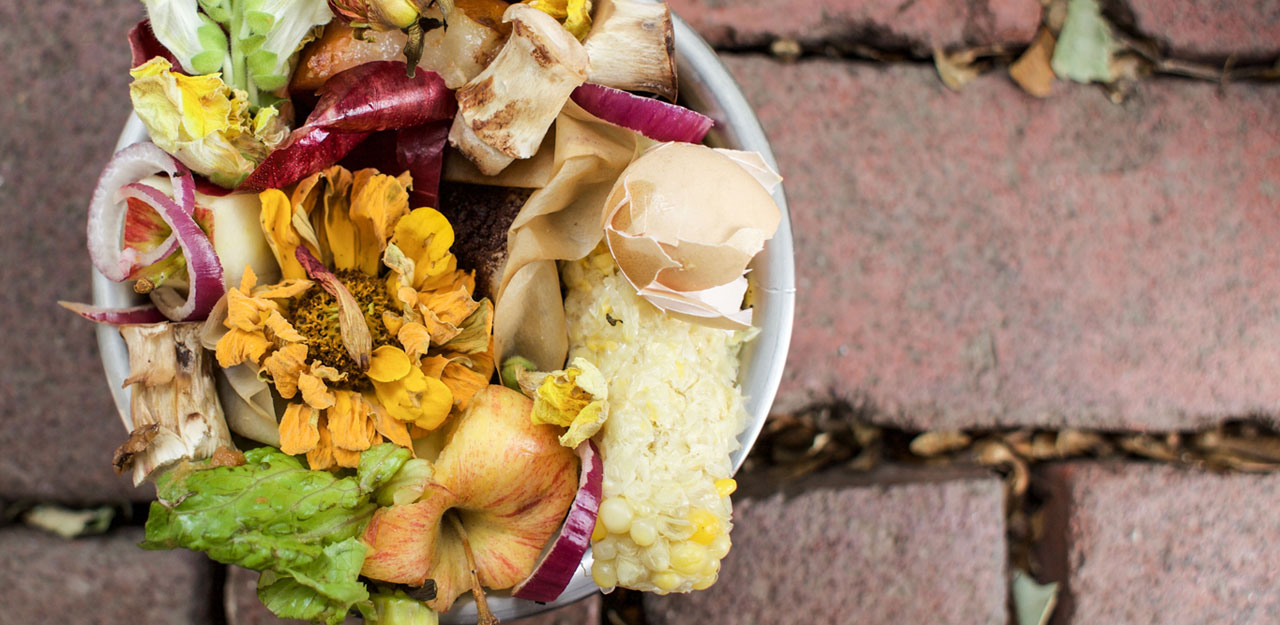Think about this: the salad you didn’t finish on your plate, the banana you peeled
yesterday and the egg shells left from your dinner ingredients… what happens to them?
This pre- and post-consumer food waste accumulates.
Just think about all of the food scraps and waste you create as an individual. Now think
of how much food waste is created by the campus as a whole. What if all of those food
leftovers were just dumped into a landfill?
Fortunately, Dining Services is always pushing to be more sustainable. Early in 2012,
partnering with Waste Management, Dining Services launched a “behind the scenes
composting program” to collect both pre-consumer and post-consumer materials. Any
food scraps generated before the food is served and all leftovers on your plates that are
put on Danforth’s tray belts get composted. Douglass utilizes a biodigester to divert their
pre- and post-consumer food waste from landfills.
Last school year, from September 2016 to August 2017, 116,172 pounds of food waste
were composted and diverted from the landfill through this program. This prevents
further overuse of landfills and reduces methane emissions.
In 2015, Dining Team Green interviewed Dining services to highlight the composting
initiatives we already have on campus. Check out this short Composting at UR video to
see how it works!
Dining Services has decided to put so much effort into composting because of all of its
environmental benefits. But we have a great tip on what’s even more sustainable than
composting. Reducing your food waste! Reducing food waste makes the most sense
not only for the Earth but also for your wallet.
Start reducing food waste today and go green with Dining Team Green. Want more
information on sustainability in dining? Follow us @ursustainibble
Guest Post Written by Can Wang, Dining Team Green Marketing Intern, Class of 2020


Hi Keane. Currently we are not set up to collect compostable material outside of our dining halls. But as the EPA’s food recovery network points out, we should try to reduce or eliminate food waste first and feed hungry people before composting. We donate edible food to local charities through the Food Recovery Network. Plus we have a Facebook page where free leftover food is offered to students!
This is great, but is it possible to get composting bins in places outside of the dining halls as well? Lots of food is also eaten in non-dining hall locations around campus and all this compostable material gets tossed in the trash and sent off to landfills.
Great story! Reminds everyone just take only what you plan to eat. Glad U of R is working with Waste Management to take care of our waste in a sustainable manner.